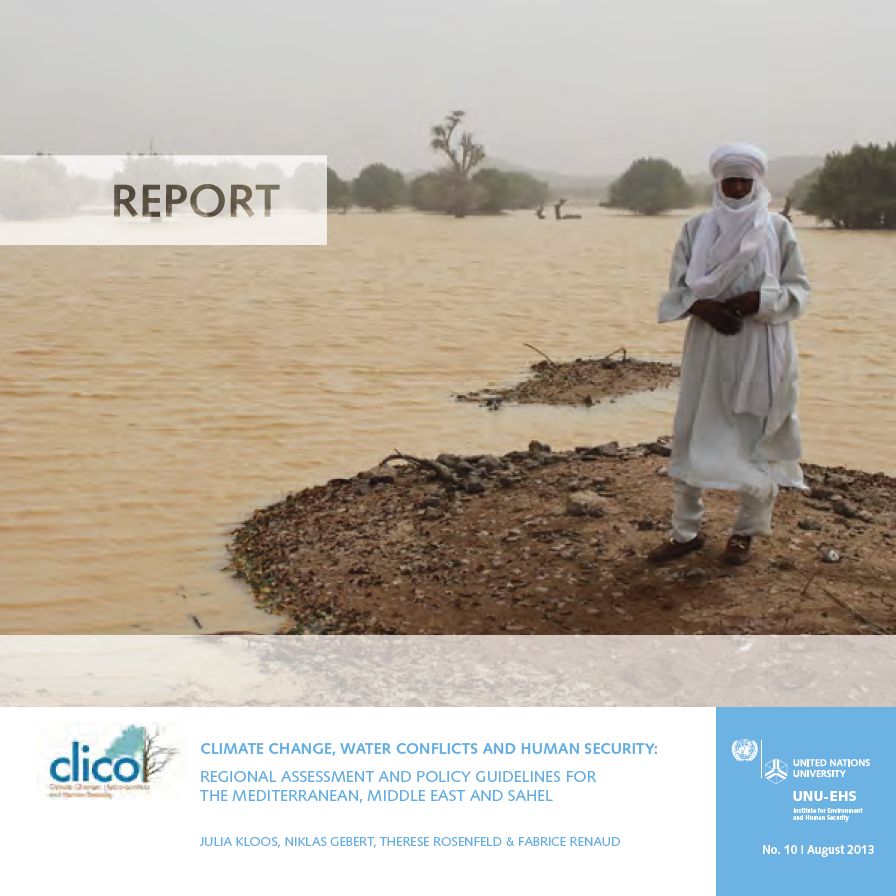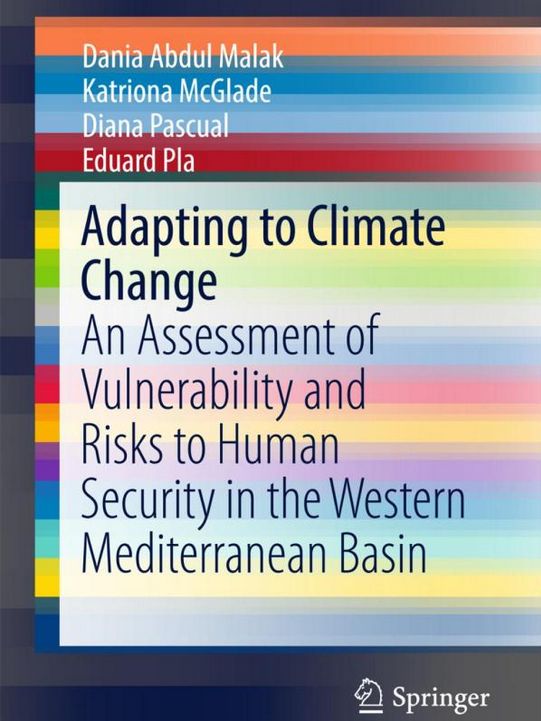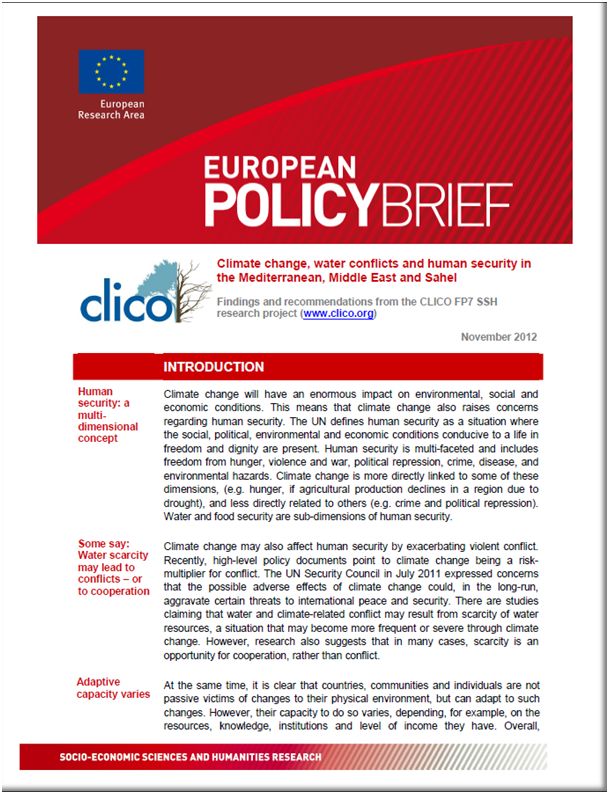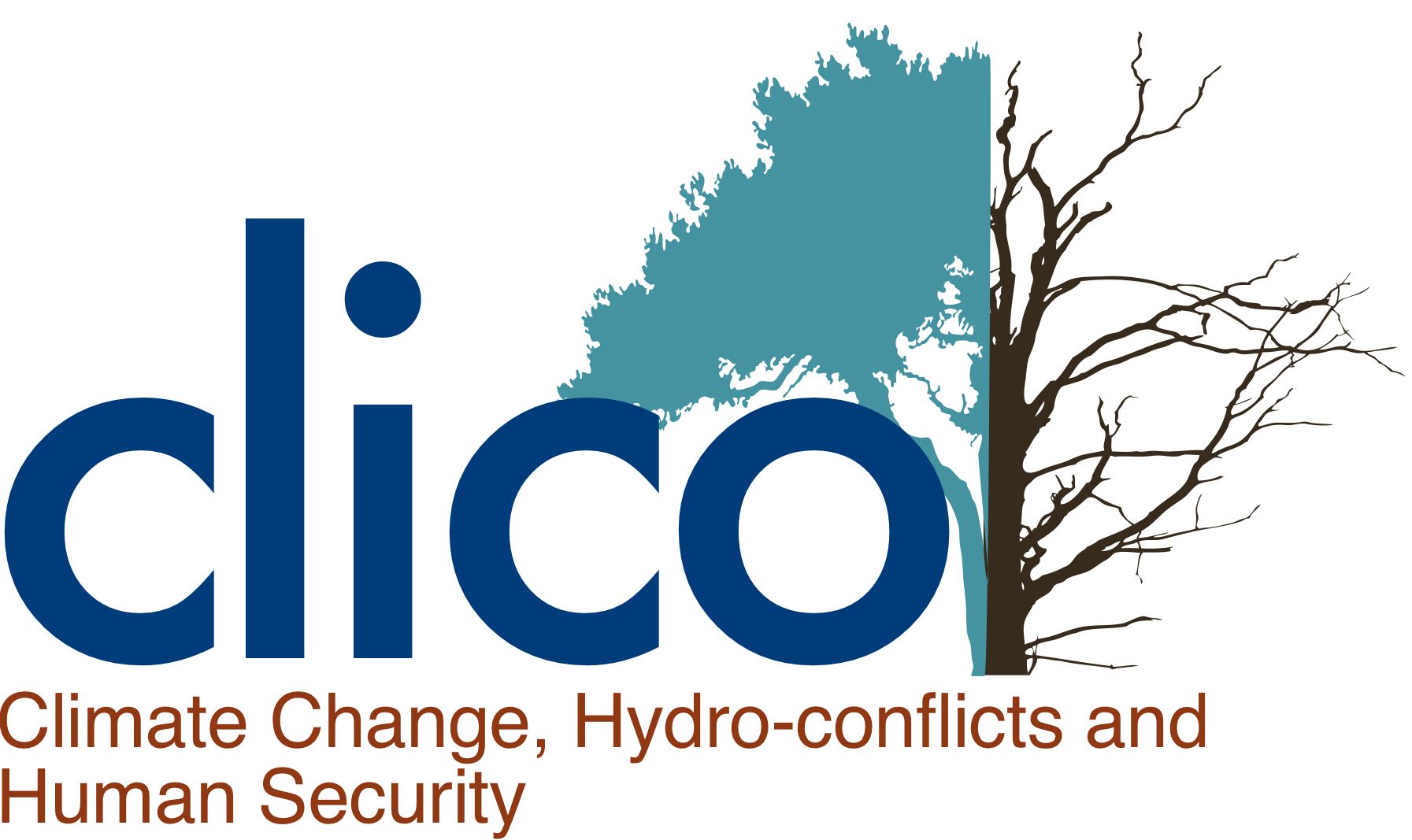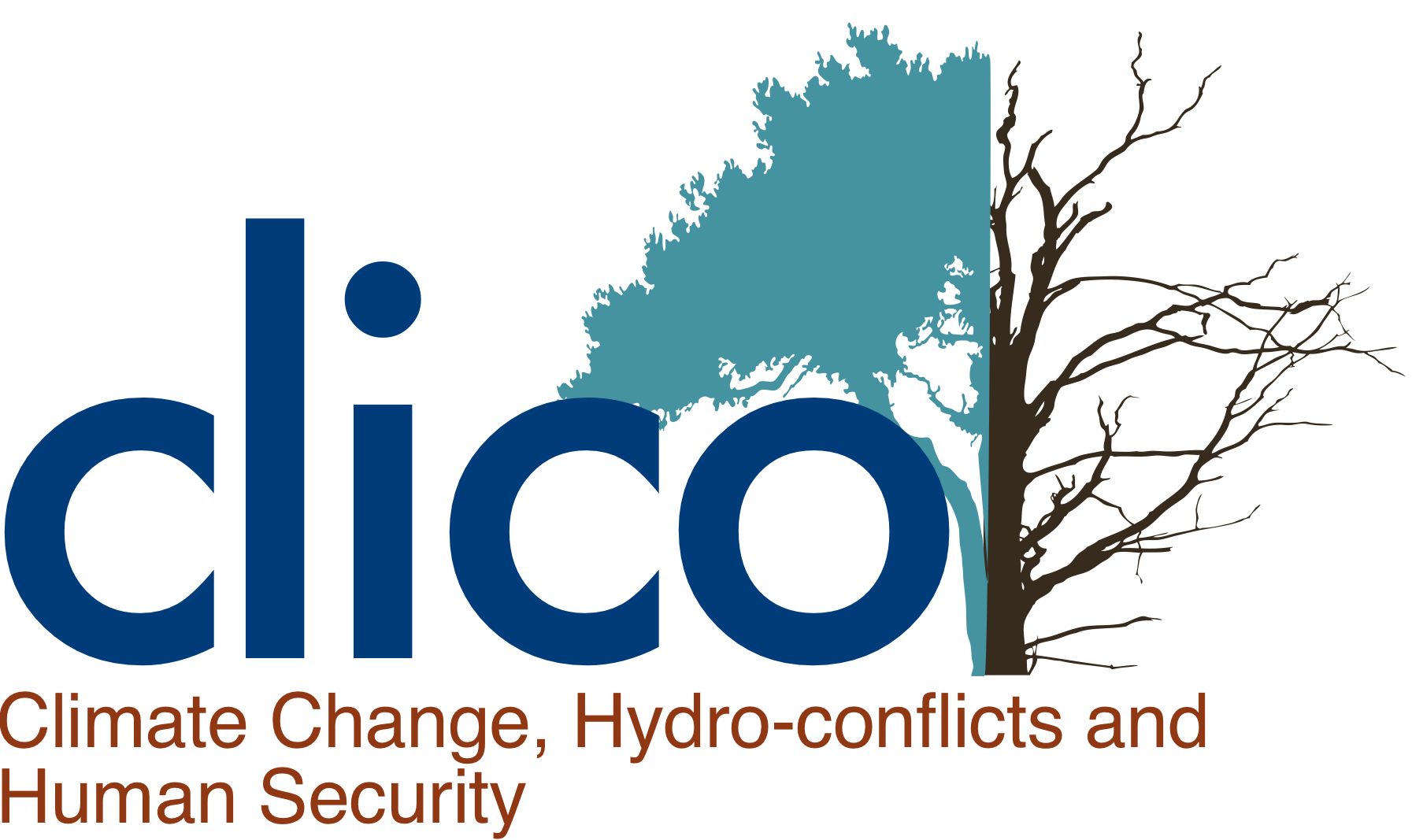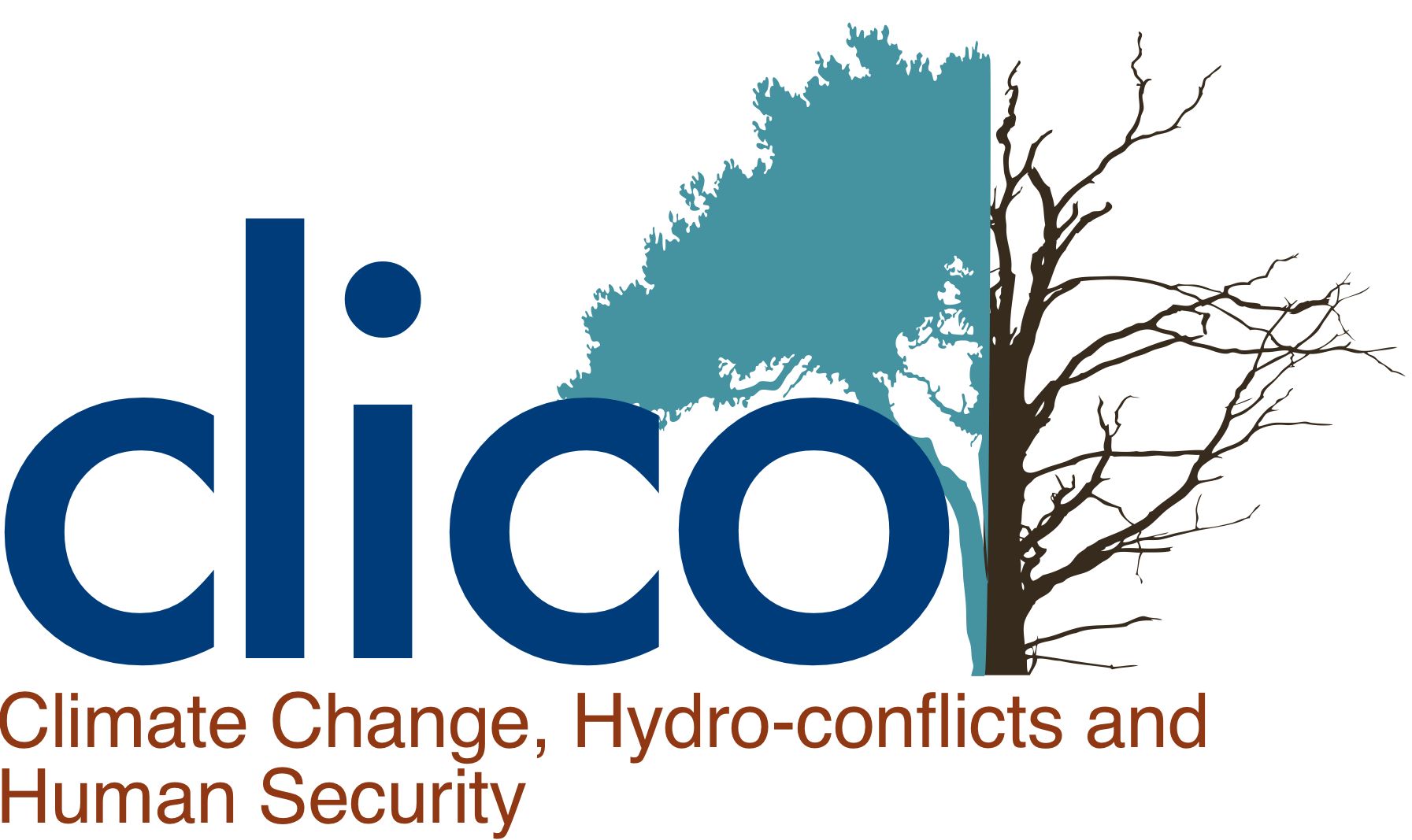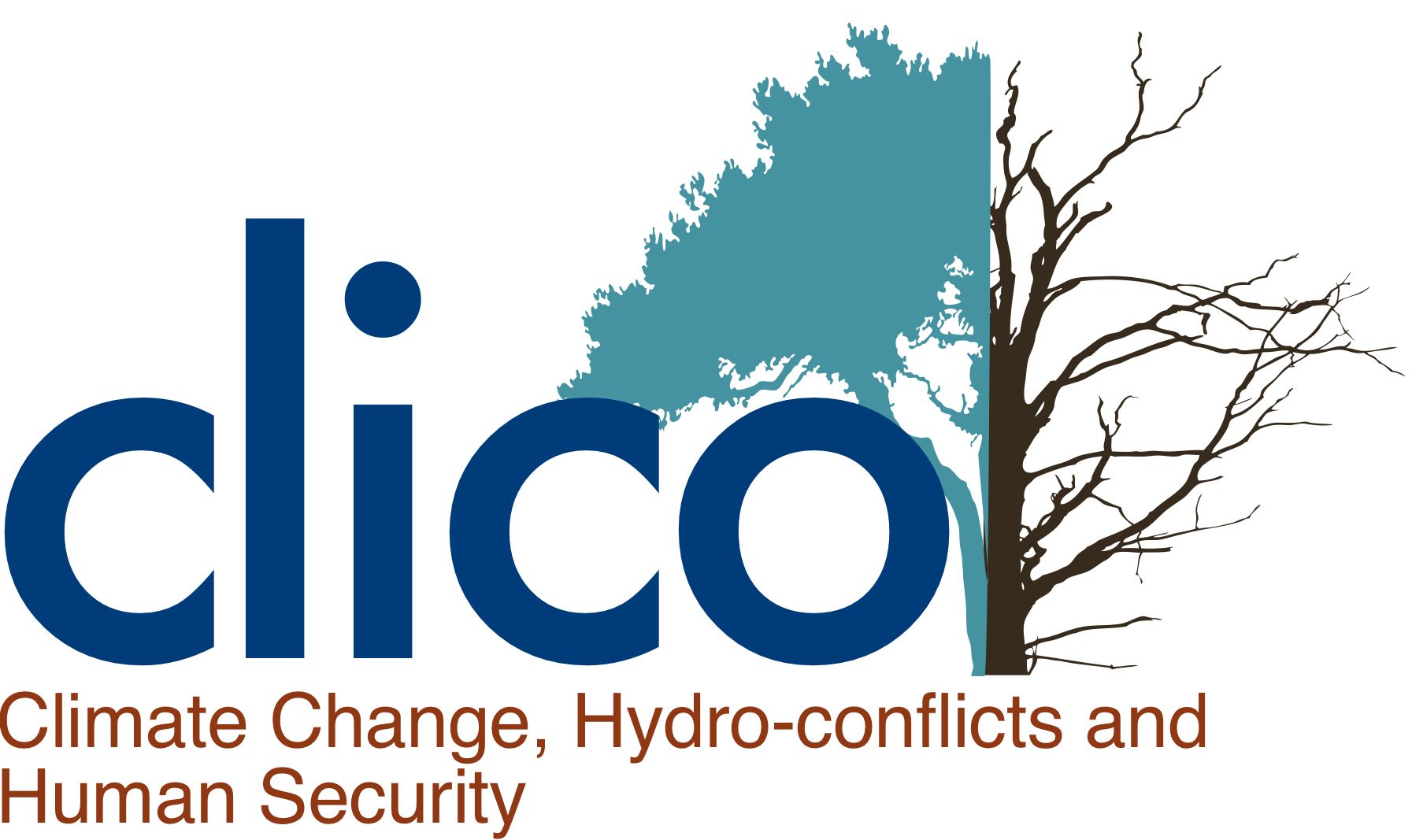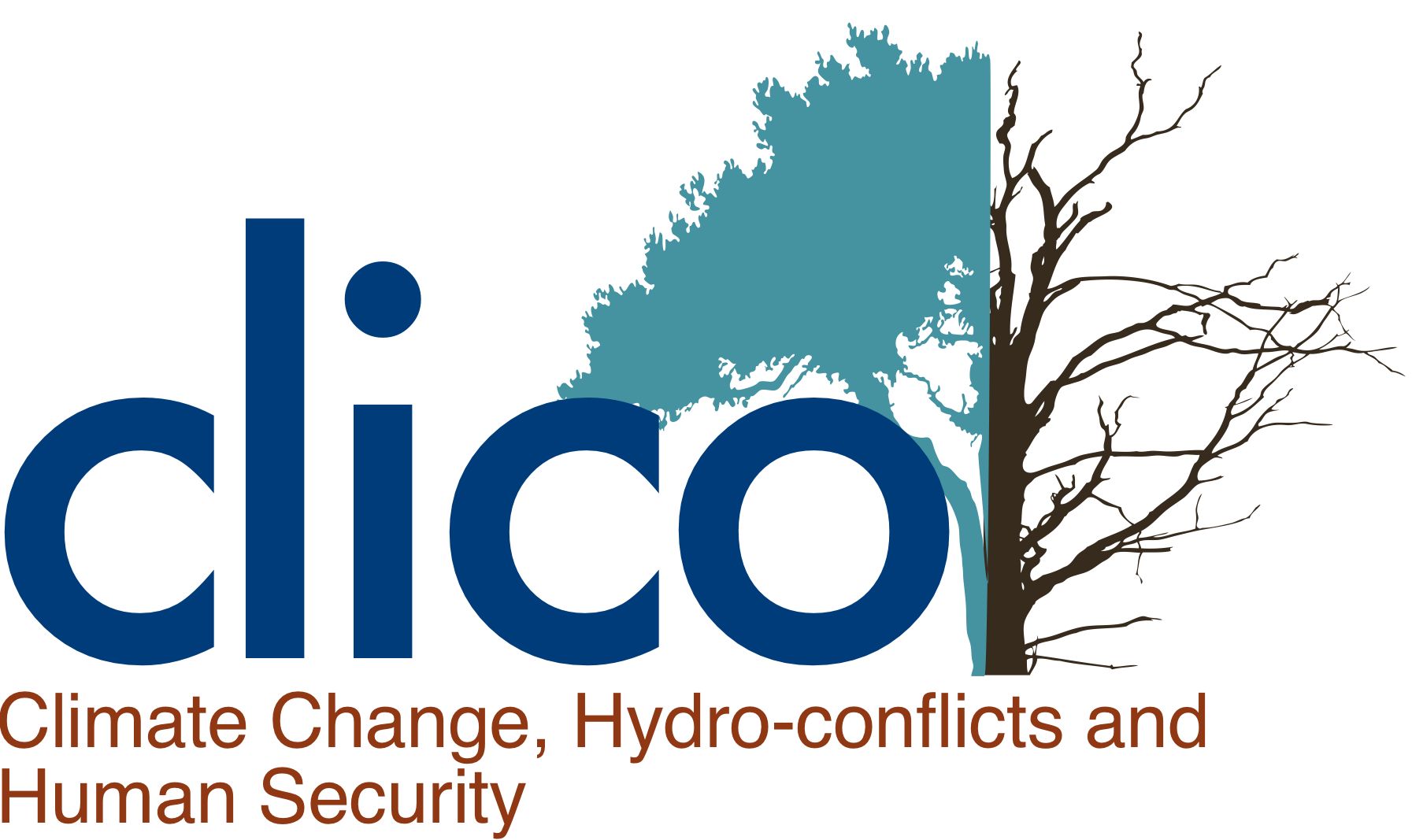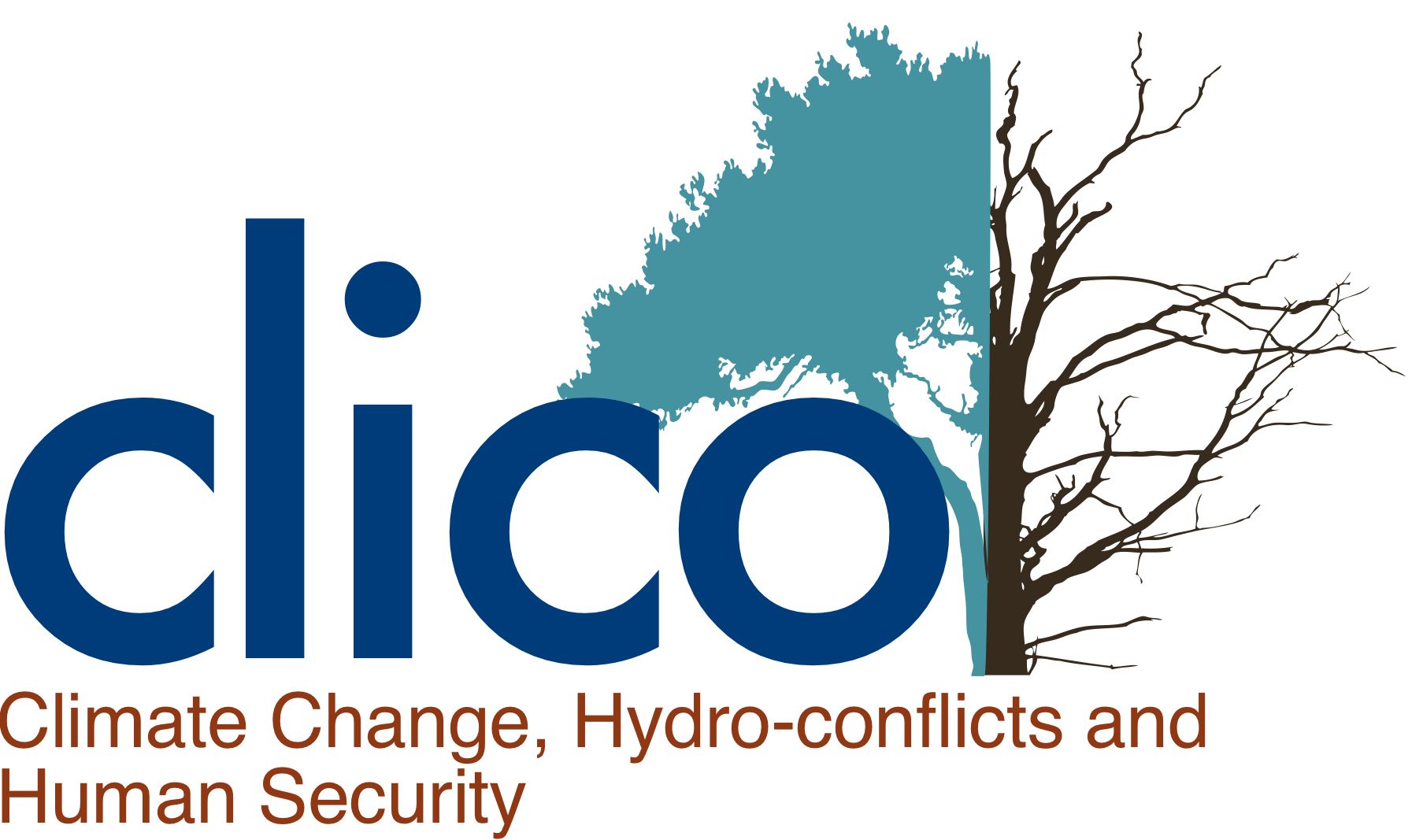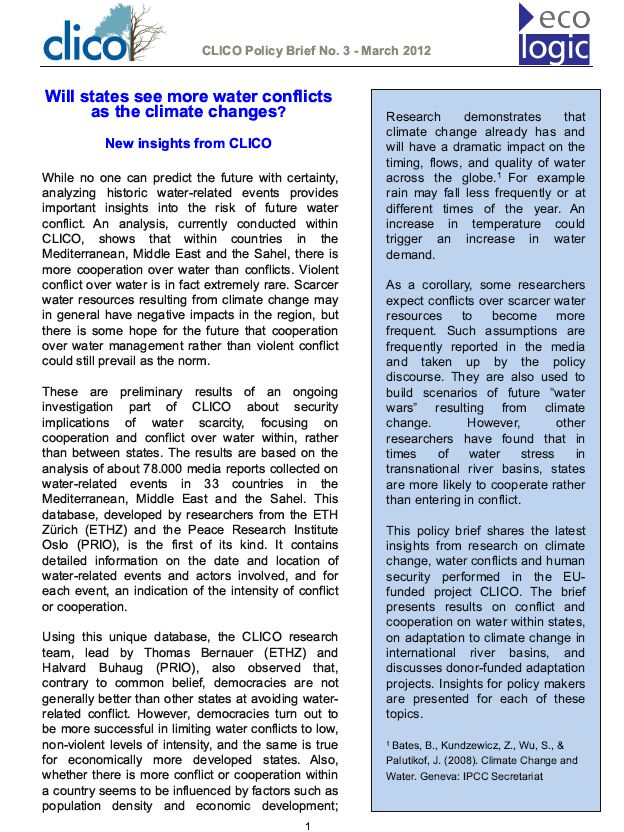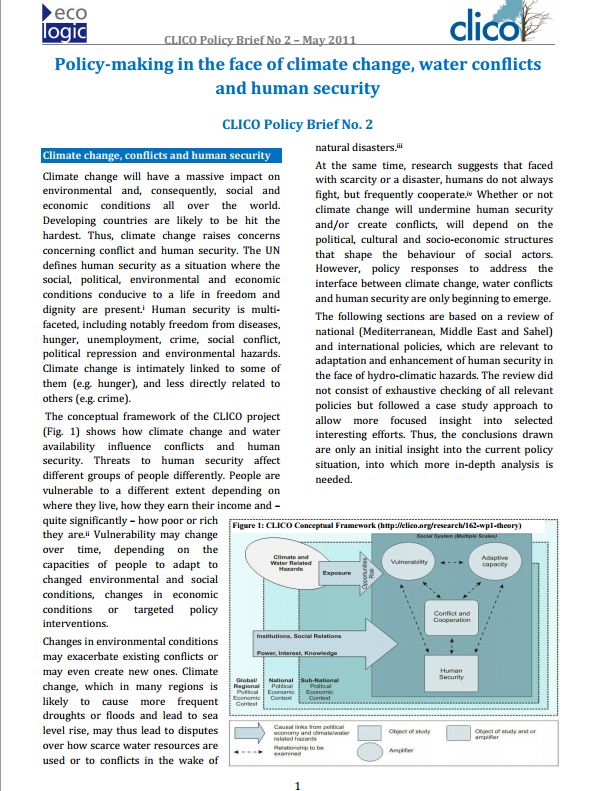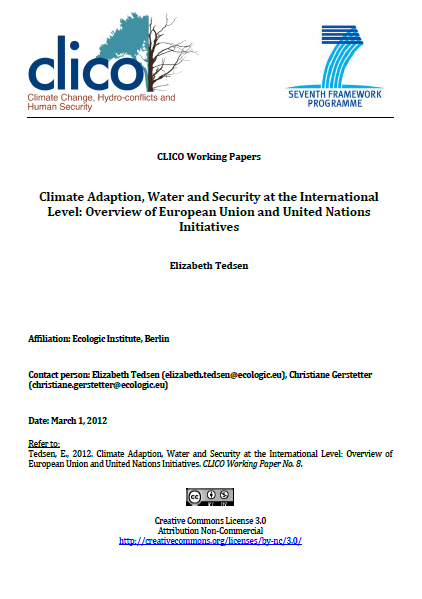Climate Change, Water Conflicts and Human Security
Regional Assessment and Policy Guidelines for the Mediterranean, Middle East and Sahel
- Publication
- Citation
Kloos, J., Gebert, N., Rosenfeld, T., and F. Renaud (2013). Climate Change, Water Conflicts and Human Security: Regional Assessment and Policy Guidelines for the Mediterranean, Middle East and Sahel. Report No. 10. Bonn: United Nations University Institute for Environment and Human Security (UNU-EHS).
Climate change has and will continue to have far-reaching impacts on environmental, social and economic conditions. Increasingly, climate change and the associated increase in the frequency of extreme weather events such as floods, droughts and rising sea level is recognized as not only having humanitarian impacts, but also creating political and security risks that can affect national/regional stability and the welfare of people. This has led to increased political interest in the influence of climate change on water availability and human security. Specifically, it remains contested whether climatic and hydrological changes and increasing variabilities trigger and multiply conflict at various scales, or if they induce cooperation between and within countries. The report is available for download.
This report [pdf, 4,42 MB, English] presents a comprehensive regional assessment of these questions in the CLICO study area – the Mediterranean, Middle East, and Sahel – in terms of climate change impacts, vulnerabilities, conflict/cooperation and human security. Results of the various approaches (in-depth case studies, large N statistical analyses, assessments of transboundary adaptive capacities and transactions costs, policy analysis related to climate change adaptation) confirm observations that climate and hydrological factors, socio-economic, institutional and political conditions are all important drivers of human (in) security, but their relative importance depends on the specific context in which they interact. CLICO research points toward stronger links between political, economic and social factors and water-related conflict than between climate-related variables and water conflict. (However, in the future these relationships might change.)
Ecologic Institute was in charge of a review on national and international policies and institutional frameworks, which revealed that many policies on climate change adaptation and water resources management exist, which address risks for human security linked to water and climate change in a more indirect way. Policies that are more explicitly aimed at conflict reduction in this context are missing. The report includes recommendations to guide policymakers in improving adaptive capacities, reducing vulnerabilities and, hence, increasing human security in the face of climate change. Besides these more general recommendations, specific recommendations related to certain sectors (e.g., agriculture, water management) or topics (e.g., migration, infrastructure) were developed.
